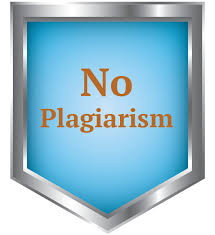 The culmination of years of rigorous research and scholarly pursuit often finds its ultimate expression in the form of an MA dissertation. This comprehensive assignment serves as a testament to a student's dedication, intellect, and capacity for critical inquiry. However, before this magnum opus can be presented to the academic community, it must undergo a meticulous and thorough review process, particularly in the case of the questionnaire used to gather essential data. This is where the pivotal role of our expert dissertation questionnaire editors comes into play. At the heart of our dedicated service is a team of seasoned professionals who specialize in the refinement and enhancement of dissertation questionnaires. We understand that crafting the perfect questionnaire is a nuanced art, one that requires precision, clarity, and an unwavering commitment to academic excellence. With this understanding, we have assembled a team of experts who bring a wealth of experience and expertise to every project they undertake. Our promise is simple yet profound: We have professional dissertation questionnaire editors who are not just skilled in grammar and formatting, but who also possess an acute comprehension of the academic terrain. They are well-versed in the nuances of research methodologies, survey design, and the critical importance of obtaining accurate and meaningful data. These professionals are not mere proofreaders; they are guardians of academic rigor, ensuring that your questionnaire aligns seamlessly with the overarching goals of your dissertation. We offer reliable editing help for close-ended questionnaires. We stand ready to assist you in elevating your research instrument to its highest potential, empowering you to embark on your academic journey with confidence and distinction.
The culmination of years of rigorous research and scholarly pursuit often finds its ultimate expression in the form of an MA dissertation. This comprehensive assignment serves as a testament to a student's dedication, intellect, and capacity for critical inquiry. However, before this magnum opus can be presented to the academic community, it must undergo a meticulous and thorough review process, particularly in the case of the questionnaire used to gather essential data. This is where the pivotal role of our expert dissertation questionnaire editors comes into play. At the heart of our dedicated service is a team of seasoned professionals who specialize in the refinement and enhancement of dissertation questionnaires. We understand that crafting the perfect questionnaire is a nuanced art, one that requires precision, clarity, and an unwavering commitment to academic excellence. With this understanding, we have assembled a team of experts who bring a wealth of experience and expertise to every project they undertake. Our promise is simple yet profound: We have professional dissertation questionnaire editors who are not just skilled in grammar and formatting, but who also possess an acute comprehension of the academic terrain. They are well-versed in the nuances of research methodologies, survey design, and the critical importance of obtaining accurate and meaningful data. These professionals are not mere proofreaders; they are guardians of academic rigor, ensuring that your questionnaire aligns seamlessly with the overarching goals of your dissertation. We offer reliable editing help for close-ended questionnaires. We stand ready to assist you in elevating your research instrument to its highest potential, empowering you to embark on your academic journey with confidence and distinction.
What To Consider When Editing A Close-ended Questionnaire
There are several things you should consider when you decide to edit a master dissertation questionnaire to ensure that it is well-structured, concise, and effective in obtaining the data you need;
- Clarity of Questions: The questions in your questionnaire should be clear and easy to understand. Avoid using technical jargon or complex language that may confuse respondents. Use simple and concise language that is easily understood by the target audience. Additionally, avoid leading or biased questions that may influence respondents' answers. A good way to test the clarity of your questions is to pilot-test the questionnaire with a small group of people.
- Consistency in the Questionnaire's Content and Context: Consistency is essential in ensuring that your questionnaire is easy to follow and interpret. The format, style, and structure of your questions should be consistent throughout the questionnaire. Consistency also applies to the response options. Ensure that response options are uniform and consistent with the question being asked. This will make it easy for respondents to understand and answer the questions.
- Relevance of Questions: Ensure that all the questions in your questionnaire are relevant to the research question being investigated. Unrelated questions can confuse and may lead to incomplete or inaccurate data. Also, ensure that the questions are aligned with the research objectives and hypothesis.
- Length of the Questions and Questionnaire as a Whole: The length of your questionnaire should be appropriate for the research question and target population. A lengthy questionnaire may lead to fatigue and disinterest among respondents, leading to incomplete or inaccurate data. Keep the questionnaire short, while ensuring that all relevant questions are included.
- Questionnaire editors help to Avoid Ambiguity: Avoid using ambiguous or vague language in your questionnaire. Such language can lead to misinterpretation and confusion among respondents. Ensure that your questions are specific and straightforward and that there is no room for interpretation. Use unambiguous language in your response options as well.
- Avoid Double-Barreled Questions: Double-barreled questions are those that ask two questions in one sentence. They are often confusing and may lead to inaccurate data. Make sure that each question in your questionnaire is specific and asks only one question. If not, you must ask for MA dissertation questionnaire editing help so that your questions are correct and understandable.
- Use Appropriate Scales in the Questionnaire: The response options you provide for each question should be appropriate for the question being asked. Apply a scale that is suitable for the level of measurement of the variable being measured. For example, if you are measuring attitudes, a Likert scale may be appropriate, while a nominal scale may be more suitable for measuring demographic data.
- Pre-testing the Questionnaire: Before administering the questionnaire to the target population, it is crucial to pre-test the questionnaire with a small group of people. Pre-testing helps to identify any errors, inconsistencies, or ambiguities in the questionnaire. It also helps to ensure that the questions are clear, concise, and relevant to the research question.
- Avoid Leading Questions: Leading questions are those that imply a particular answer or bias. Such questions can lead to inaccurate data and compromise the validity of your research. Always be certain that your questions are neutral and unbiased, and that they do not imply any particular answer.
Why Consider Our Editing Services For Your Close-ended Questionnaire
 Our close-ended master’s dissertation questionnaire editing services are the ideal choice. Precision and clarity are paramount in close-ended questionnaires, as they often require respondents to select from predetermined answer options. Our team of experienced editors specializes in fine-tuning wording and structure to ensure questions are easily comprehensible, eliminating any ambiguity that could lead to inaccurate responses. Also, we understand the importance of maintaining a neutral and unbiased tone in questionnaires, especially when seeking objective feedback. Our editors are skilled at crafting questions that are free from leading or suggestive language, allowing respondents to provide candid responses without external influence. More so, we prioritize consistency throughout your questionnaire. This consistency extends to formatting, style, and language usage. We ensure that your questionnaire flows seamlessly, creating a cohesive and professional impression. Additionally, we encompass meticulous proofreading, guaranteeing that your questionnaire is error-free, grammatically sound, and adheres to relevant guidelines or standards. Keep in mind that we value your time and deadlines. Our efficient editing process ensures a swift turnaround without compromising quality, allowing you to move forward with your research or data collection promptly. Our editing services are your trusted partner in enhancing the effectiveness and reliability of your close-ended questionnaire, ultimately leading to more accurate data and valuable insights. Our role cannot be overruled in the realm of academic research and the pursuit of advanced degrees. We understand the critical importance of professional questionnaires as essential instruments for data collection and analysis. There are challenges that students and researchers face in creating close-ended questionnaires that are not only valid and reliable but also free from biases and ambiguities. We are your indispensable partner in this academic journey, offering a specialized skill set to refine and enhance the quality of research instruments. We bring a fresh perspective, objectivity, and a keen eye for detail, ensuring that the questions are clear, concise, and capable of yielding meaningful data. We can help you navigate the complexities of questionnaire design, including question-wording, response options, and overall structure. Furthermore, we contribute significantly to the overall rigor and credibility of a research study, fostering confidence in the research outcomes. With our guidance, you can focus on their core research objectives, confident in the knowledge that their data collection tools are finely tuned and optimized. We stand as vital pillars of support, propelling academic research towards excellence. We can empower you to harness the full potential of their studies, making significant contributions to their respective fields of inquiry. As research continues to evolve, the collaborative relationship between researchers and our experts promises to remain an enduring and fruitful partnership, ultimately advancing knowledge and understanding across disciplines.
Our close-ended master’s dissertation questionnaire editing services are the ideal choice. Precision and clarity are paramount in close-ended questionnaires, as they often require respondents to select from predetermined answer options. Our team of experienced editors specializes in fine-tuning wording and structure to ensure questions are easily comprehensible, eliminating any ambiguity that could lead to inaccurate responses. Also, we understand the importance of maintaining a neutral and unbiased tone in questionnaires, especially when seeking objective feedback. Our editors are skilled at crafting questions that are free from leading or suggestive language, allowing respondents to provide candid responses without external influence. More so, we prioritize consistency throughout your questionnaire. This consistency extends to formatting, style, and language usage. We ensure that your questionnaire flows seamlessly, creating a cohesive and professional impression. Additionally, we encompass meticulous proofreading, guaranteeing that your questionnaire is error-free, grammatically sound, and adheres to relevant guidelines or standards. Keep in mind that we value your time and deadlines. Our efficient editing process ensures a swift turnaround without compromising quality, allowing you to move forward with your research or data collection promptly. Our editing services are your trusted partner in enhancing the effectiveness and reliability of your close-ended questionnaire, ultimately leading to more accurate data and valuable insights. Our role cannot be overruled in the realm of academic research and the pursuit of advanced degrees. We understand the critical importance of professional questionnaires as essential instruments for data collection and analysis. There are challenges that students and researchers face in creating close-ended questionnaires that are not only valid and reliable but also free from biases and ambiguities. We are your indispensable partner in this academic journey, offering a specialized skill set to refine and enhance the quality of research instruments. We bring a fresh perspective, objectivity, and a keen eye for detail, ensuring that the questions are clear, concise, and capable of yielding meaningful data. We can help you navigate the complexities of questionnaire design, including question-wording, response options, and overall structure. Furthermore, we contribute significantly to the overall rigor and credibility of a research study, fostering confidence in the research outcomes. With our guidance, you can focus on their core research objectives, confident in the knowledge that their data collection tools are finely tuned and optimized. We stand as vital pillars of support, propelling academic research towards excellence. We can empower you to harness the full potential of their studies, making significant contributions to their respective fields of inquiry. As research continues to evolve, the collaborative relationship between researchers and our experts promises to remain an enduring and fruitful partnership, ultimately advancing knowledge and understanding across disciplines.
Help with Editing Close-ended Questionnaires in MA Dissertations
 The pursuit of a Master's degree is a significant milestone that requires rigorous research and dedication. One crucial aspect of this academic journey is the completion of a Master's dissertation, a scholarly work that reflects the culmination of years of study and exploration within a particular field. Among the many components of a Master's dissertation, the close-ended questionnaire stands out as a valuable tool for collecting quantitative data and validating research hypotheses. However, writing an effective questionnaire that adheres to the highest academic standards can be a challenging endeavor. This is where our expert dissertation questionnaire editors come to your aid. We understand that the meticulous editing and refinement of close-ended questionnaires are essential to ensure the validity and reliability of your research findings. With a keen eye for detail and a deep understanding of academic writing conventions, our team of seasoned editors is dedicated to helping you achieve the highest level of clarity, precision, and coherence in your questionnaires. Our commitment to excellence in questionnaire editing is grounded in years of experience working with Master's students from various academic disciplines. We recognize the significance of a well-written questionnaire in your research, and our experts are here to offer their invaluable assistance in perfecting this critical component of your MA dissertation. There are challenges faced by students when editing close-ended questionnaires for MA dissertations, highlighted by our expert team to provide the necessary guidance and support to ensure your research instruments are finely tuned for success.
The pursuit of a Master's degree is a significant milestone that requires rigorous research and dedication. One crucial aspect of this academic journey is the completion of a Master's dissertation, a scholarly work that reflects the culmination of years of study and exploration within a particular field. Among the many components of a Master's dissertation, the close-ended questionnaire stands out as a valuable tool for collecting quantitative data and validating research hypotheses. However, writing an effective questionnaire that adheres to the highest academic standards can be a challenging endeavor. This is where our expert dissertation questionnaire editors come to your aid. We understand that the meticulous editing and refinement of close-ended questionnaires are essential to ensure the validity and reliability of your research findings. With a keen eye for detail and a deep understanding of academic writing conventions, our team of seasoned editors is dedicated to helping you achieve the highest level of clarity, precision, and coherence in your questionnaires. Our commitment to excellence in questionnaire editing is grounded in years of experience working with Master's students from various academic disciplines. We recognize the significance of a well-written questionnaire in your research, and our experts are here to offer their invaluable assistance in perfecting this critical component of your MA dissertation. There are challenges faced by students when editing close-ended questionnaires for MA dissertations, highlighted by our expert team to provide the necessary guidance and support to ensure your research instruments are finely tuned for success.
Tips for Editing a Close-Ended Dissertation Questionnaire
The best approach to editing a close-ended questionnaire to perfection;
- Review your research questions: Before you start editing a questionnaire, take a moment to review your research questions. Your questions should be clear and concise, and they should be designed to collect the data you need to answer your research questions. If you find that your questions are too complex or confusing, consider revising them to make them more straightforward and understandable.
- Eliminate unnecessary questions: As you review your questionnaire, look for any questions that are unnecessary or redundant. Eliminating these questions will help to streamline your questionnaire and make it more focused on your research questions. Additionally, removing unnecessary questions will make it easier for participants to complete your questionnaire, which will increase your response rate.
- Ensure that your questions are unbiased: Your questions should be neutral and unbiased to prevent any unintentional influence on the responses of the participants. Avoid leading questions, which could lead to biased responses. Similarly, ensure that you are not using any technical terms or jargon that participants might not understand. Use simple language and structure the questions in a logical order.
- Ensure you use consistent scales as you edit your questionnaire: Consistent scales provide a uniform and standard method of collecting data. Using inconsistent scales will lead to data that is difficult to analyze and interpret. For instance, if you are asking participants to rate their agreement with a statement, ensure that the response options are consistent throughout the questionnaire.
- Check the clarity of the questionnaires' instructions: Clear instructions are essential to ensure that participants can complete your questionnaire accurately. Check that your instructions are easy to understand and follow. Use simple language and provide clear examples if necessary. The instructions should be concise and not open to interpretation.
- Test your questionnaire: Testing your questionnaire before distribution is critical to ensuring that it is well-designed and effective. Conduct a pilot study with a small sample of participants to identify any potential issues or challenges.
- Edit for readability of the queries: Your questionnaire should be easy to read and understand. Use a clear font that is easy to read and avoid using excessive bolding or underlining. Break up long paragraphs into shorter ones to make the questionnaire less intimidating to complete. Correspondingly, use bullet points and subheadings to organize the questionnaire and make it more reader-friendly.
- Consider the length of the questionnaire: The length of your questionnaire is also essential. It should be long enough to collect the data you need but not so long that participants become disinterested or fatigued. Aim for a questionnaire that takes no longer than 30 minutes to complete. In case your questionnaire is too long, consider breaking it up into shorter sections or reducing the number of questions.
- As you edit the questionnaire, check for spelling and grammatical errors: Finally, ensure that your questionnaire is free of spelling and grammatical errors. These errors can make your questionnaire appear unprofessional and can distract participants from the research questions. You can use a spell-checker and proofread the questionnaire carefully before distribution.
How Does Our Editing Help To Improve Your Dissertation Questionnaire Design?
Editing plays a crucial role in enhancing the effectiveness of dissertation questionnaire design in several ways. We offer help with editing close-ended questionnaires in MA dissertations, to ensure that the design is as per the requirement. We enhance clarity and coherence in the questions posed, making them more comprehensible to respondents. Editing helps eliminate ambiguity, jargon, or convoluted language that may confuse or bias participants' responses, ultimately leading to more accurate data collection. Furthermore, we help in maintaining the focus and relevance of the questionnaire. It helps to streamline the questions, removing any extraneous or redundant items that could overwhelm participants or dilute the research objectives. This results in a more concise and manageable survey, improving response rates and data quality. In addition, we assist with refining the structure and organization of the questionnaire. Proper sequencing and grouping of questions can facilitate a logical flow and minimize the cognitive burden on respondents. Editing also assists in ensuring that the questionnaire adheres to ethical guidelines, respects respondents' privacy, and maintains a neutral tone, minimizing any potential bias. Ultimately, a well-edited dissertation questionnaire not only enhances the overall quality of the research but also reflects positively on the researcher's professionalism and commitment to sound research practices. It contributes to the reliability and validity of the collected data, which is vital for drawing meaningful conclusions and making valuable contributions to the academic field.
Qualities Of A Well-edited MA Project Questionnaire;
A well-edited dissertation questionnaire possesses several key qualities to ensure its effectiveness and reliability as a data collection tool:
- Clarity and Precision: Questions should be clear, concise, and free from ambiguity. They should convey the intended meaning without confusion or misinterpretation.
- Relevance: All questions must directly relate to the research objectives and the topic of the dissertation. Irrelevant or off-topic questions should be excluded.
- Logical Flow: Questions should follow a logical sequence that makes sense to respondents, leading them through the questionnaire in a coherent manner.
- Balance of Question Types: Utilize a mix of question types, such as multiple-choice, open-ended, and scaled questions, to capture a comprehensive range of data.
- Consistency: Maintain a consistent format and style throughout the questionnaire, including font size, spacing, and question numbering.
- Proper Length: Keep the questionnaire as concise as possible to minimize respondent fatigue, while still collecting the necessary data.
- Randomization: If applicable, randomize the order of questions or response options to reduce bias.
- Piloting and Revisions: Based on the pretest results, make final revisions to the questionnaire to address any identified problems.
- Validity and Reliability: Ensure that the questionnaire measures what it intends to measure and produces consistent results when administered to the same group.
 The process of editing a dissertation is an essential step in ensuring the overall quality and validity of research. As this brief exploration has demonstrated, the construction and refinement of questionnaires demand meticulous attention to detail and a critical eye for potential pitfalls. By seeking our help, graduate students can significantly enhance the reliability and effectiveness of their research instruments, thereby strengthening the foundations of their dissertations. Through careful editing, we can help you eliminate ambiguities, clarify language, and fine-tune the wording of questions to accurately capture the intended information. This process not only improves the data collection process but also ensures that the analysis and findings of the dissertation are based on robust and well-structured data. Furthermore, editing close-ended surveys serves as an opportunity for students to develop valuable research skills that extend beyond their current projects. The knowledge gained from this experience will undoubtedly prove beneficial in future academic endeavors and professional pursuits. The importance of seeking help cannot be underrated. It is a crucial step toward producing research that is rigorous, credible, and capable of contributing meaningfully to the body of knowledge in one's field of study. Through careful and thoughtful editing, graduate students can elevate the quality of their research, making a lasting impact on their academic and professional journeys.
The process of editing a dissertation is an essential step in ensuring the overall quality and validity of research. As this brief exploration has demonstrated, the construction and refinement of questionnaires demand meticulous attention to detail and a critical eye for potential pitfalls. By seeking our help, graduate students can significantly enhance the reliability and effectiveness of their research instruments, thereby strengthening the foundations of their dissertations. Through careful editing, we can help you eliminate ambiguities, clarify language, and fine-tune the wording of questions to accurately capture the intended information. This process not only improves the data collection process but also ensures that the analysis and findings of the dissertation are based on robust and well-structured data. Furthermore, editing close-ended surveys serves as an opportunity for students to develop valuable research skills that extend beyond their current projects. The knowledge gained from this experience will undoubtedly prove beneficial in future academic endeavors and professional pursuits. The importance of seeking help cannot be underrated. It is a crucial step toward producing research that is rigorous, credible, and capable of contributing meaningfully to the body of knowledge in one's field of study. Through careful and thoughtful editing, graduate students can elevate the quality of their research, making a lasting impact on their academic and professional journeys.






